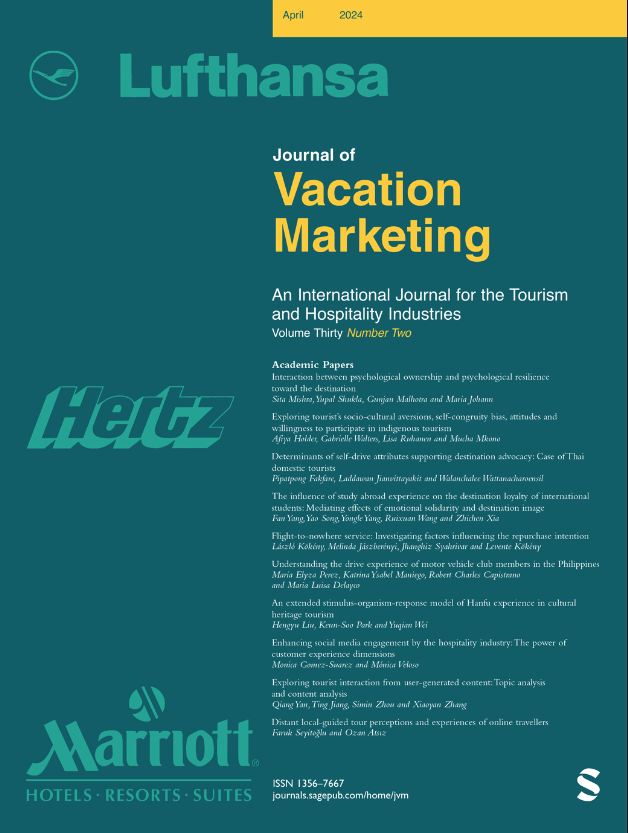Importance–performance analysis of olive oil tourism activities: Differences between national and international tourists
IF 5
3区 管理学
Q1 BUSINESS
引用次数: 1
Abstract
Olive oil tourism offers enormous potential in rural areas where extra virgin olive oil is produced. This sector is characterized by the high seasonality of its economic activity (from November to February), which generates huge inequalities between rural and urban areas, leading to high rates of unemployment and depopulation due to the lack of stable work throughout the year. The set of activities that revolve around olive oil tourism help to structure the offer and generate satisfaction with the service. This could generate a constant flow of income throughout the year and complement agricultural activity, thus reducing the seasonality problems mentioned above. In this respect, the configuration of these olive oil tourism activities represents a challenge from the supply-side perspective, especially if we take into account the differences that may arise between different groups of tourists. This article seeks to analyse and structure the main olive oil tourism activities using Importance-Performance (I-P) analysis in relation to national and international tourists’ satisfaction. The aim is to select and structure the key activities in the supply of olive oil tourism, and determine which need to be improved in order to offer a better service. These key activities differ between the two study target audiences, where a higher requirement is observed on the part of international tourists, so a series of strategies are recommended to help the management of these destinations.橄榄油旅游活动的重要性-绩效分析:国内和国际游客之间的差异
橄榄油旅游为生产特级初榨橄榄油的农村地区提供了巨大的潜力。该部门的特点是其经济活动具有高度的季节性(从11月到2月),这在农村和城市地区之间造成了巨大的不平等,由于全年缺乏稳定的工作,导致高失业率和人口减少。围绕橄榄油旅游的一系列活动有助于构建服务并产生服务满意度。这可以在全年产生源源不断的收入,补充农业活动,从而减少上述季节性问题。在这方面,从供应方的角度来看,这些橄榄油旅游活动的配置是一个挑战,特别是如果我们考虑到不同游客群体之间可能出现的差异。本文试图利用重要性-绩效(I-P)分析与国内和国际游客满意度相关的主要橄榄油旅游活动的分析和结构。目的是选择和组织橄榄油旅游供应中的关键活动,并确定需要改进哪些活动,以便提供更好的服务。这些关键活动在两个研究目标受众之间有所不同,其中国际游客的要求更高,因此建议了一系列策略来帮助管理这些目的地。
本文章由计算机程序翻译,如有差异,请以英文原文为准。
求助全文
约1分钟内获得全文
求助全文
来源期刊

Journal of Vacation Marketing
Multiple-
CiteScore
9.70
自引率
15.70%
发文量
54
期刊介绍:
Journal of Vacation Marketing is a fully peer reviewed international journal that publishes original research and review articles on topics relating to the marketing of destinations and businesses/organisations involved in the wider tourism, hospitality and events industries. Its objective is to provide a forum for the publication of refereed academic papers and reviewed practitioner papers which are of direct relevance to industry, while meeting the highest standards of intellectual rigour.
 求助内容:
求助内容: 应助结果提醒方式:
应助结果提醒方式:


